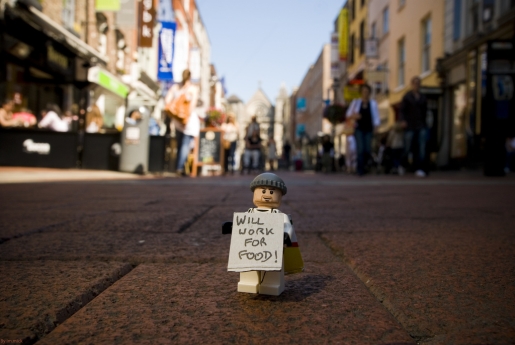
If you think you’re having it rough with the economic downturn, just imagine how bad it is for the place where you live. All throughout America, individual states are starting to run out of money to pay unemployment, forcing them to borrow billions of dollars from the federal government (which is already out of money). Some 33 states and the US Virgin Islands have turned to the feds for money, and four other states are on the brink of insolvency. California alone has borrowed $8.4 billion of the $38.7 billion dollars paid out by the government, more than the two next highest states (Michigan and New York) combined.
While it’s easy to blame the economic downturn, that’s not the problem. “The nation’s financing system for jobless benefits is under unprecedented stress,” said Andrew Stettner, deputy director of the New York-based National Employment Law Project. “While the recession has certainly made things worse, this funding crisis has been developing for years.” As it turns out, only 19 states met the optimum level of funding before the recession kicked in.
Jobless benefits have increased, but the tax on wages to pay for those benefits hasn’t increased, which combined with greater spending at the local level means no more money. Rather than consistently collecting, they cut taxes and spent funds when times were good and cut benefits and raised taxes when times were tougher. Now that more people are out of work and need those benefits, there’s no cash left over.
Then again, California as a state has never had a clue as to how to manage its money, so begging the government for cash is nothing new there.
Image: im.mick
Tags: unemployment benefits, states running out of money, benefits running out, the economy, national debt, states borrowing billions of dollars from federal government, money crunch, Andrew Stettner, National Employment Law Project







